Earth
Sign up for our newsletter
We summarize the week's scientific breakthroughs every Thursday.
-
 Agriculture
AgricultureDealing with change, climate and otherwise
Wine, DNA, our understanding of the universe: It's all changing, whether we are ready for it or not.
By Eva Emerson -
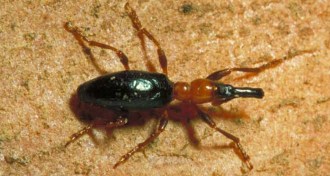 Agriculture
AgricultureSweet potato weevils have favorite colors
When it comes to eradicating the sweet potato weevil, the devil is in the colorful details.
-
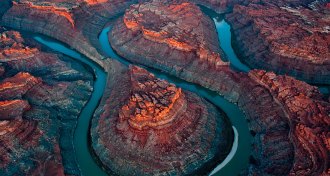 Earth
EarthThe long and winding Colorado
The history of the West’s iconic river is written in the dramatic landscapes it has shaped. How to interpret that chronicle has become a contentious issue among geologists.
-
 Chemistry
ChemistryBattery blueprint promises green energy storage
A device that relies on organic molecules could cheaply bank power from renewable sources.
By Beth Mole -
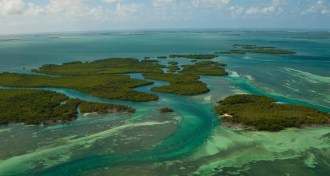 Climate
ClimateMangroves move up Florida’s coast
Satellite images reveal that the tropical trees are expanding north up Florida’s Atlantic coast, taking advantage of rising winter temperatures.
-
 Earth
EarthCreativity offers insights into the past and future
With the long-term future of many fisheries in doubt and severe drought once again hitting the Southwest, coming up with new insights into the past and future on land and sea may be crucial to protecting some of our most precious resources.
By Eva Emerson -
 Climate
ClimateYear in Review: Carbon dioxide levels pass milestone
Although scientists are confident about humankind’s role in climate change, they still have a lot to learn about the magnitude and timing of future climate shifts.
By Erin Wayman -
 Environment
EnvironmentProtein fibers trap greenhouse gas
The method could scrub exhaust from cars and power plants.
-
 Environment
EnvironmentStillbirth rates tied to lead in drinking water
Fetal death rates rose in Washington, D.C., in parallel with two recent spikes in drinking water’s lead levels.
-
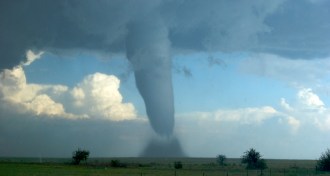 Climate
ClimateTornado intensity climbs in the United States
Larger paths of destruction may be tied to climate change.
By Meghan Rosen -
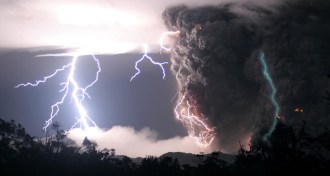 Earth
EarthGreen lightning may be caused by positive charges, or by camera lens
Physicist offers possible explanations for stunning photograph of volcanic eruption.
By Meghan Rosen -
 Environment
EnvironmentWorld’s worst polluted
A new report by Green Cross Switzerland and the Blacksmith Institute lists places posing the greatest risk to human health.